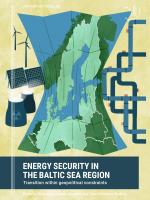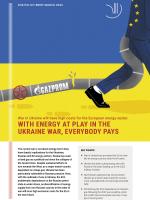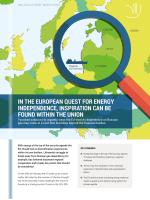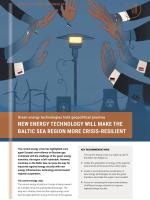Energy security in the Baltic Sea Region
The Russian attack on Ukraine in February 2022 shook continental geopolitics and led to a major shift in EU energy policy. The necessary speed of the combined diversification away from the Russian energy sources, fossil fuel phase-out and mass scale-up of low-carbon energy and technologies are having a tremendous impact on European national economies and societies.
The Baltic Sea Region is no exception. Baltic Sea energy politics currently paints a complicated picture of competing pipeline projects, sprouting new LNG terminals, plans to build nuclear power infrastructure, a race to develop new energy technologies and to increase the interconnectedness, and digitalisation of the electricity grids. These developments will transform the regional energy landscape for decades to come and have important security implications.
This DIIS Report provides a comprehensive overview of the energy security situation in the Baltic Sea Region, zooming in on eight country cases (Denmark, Sweden, Finland, Estonia, Latvia, Lithuania, Poland and Germany). By locating the national energy policies in a historical context that shaped choices of energy infrastructure and technology, the analysis investigates how the energy policy and energy mix of each country was affected by cutting the energy ties with the Kremlin following the outbreak of war in 2022.
DIIS Experts










